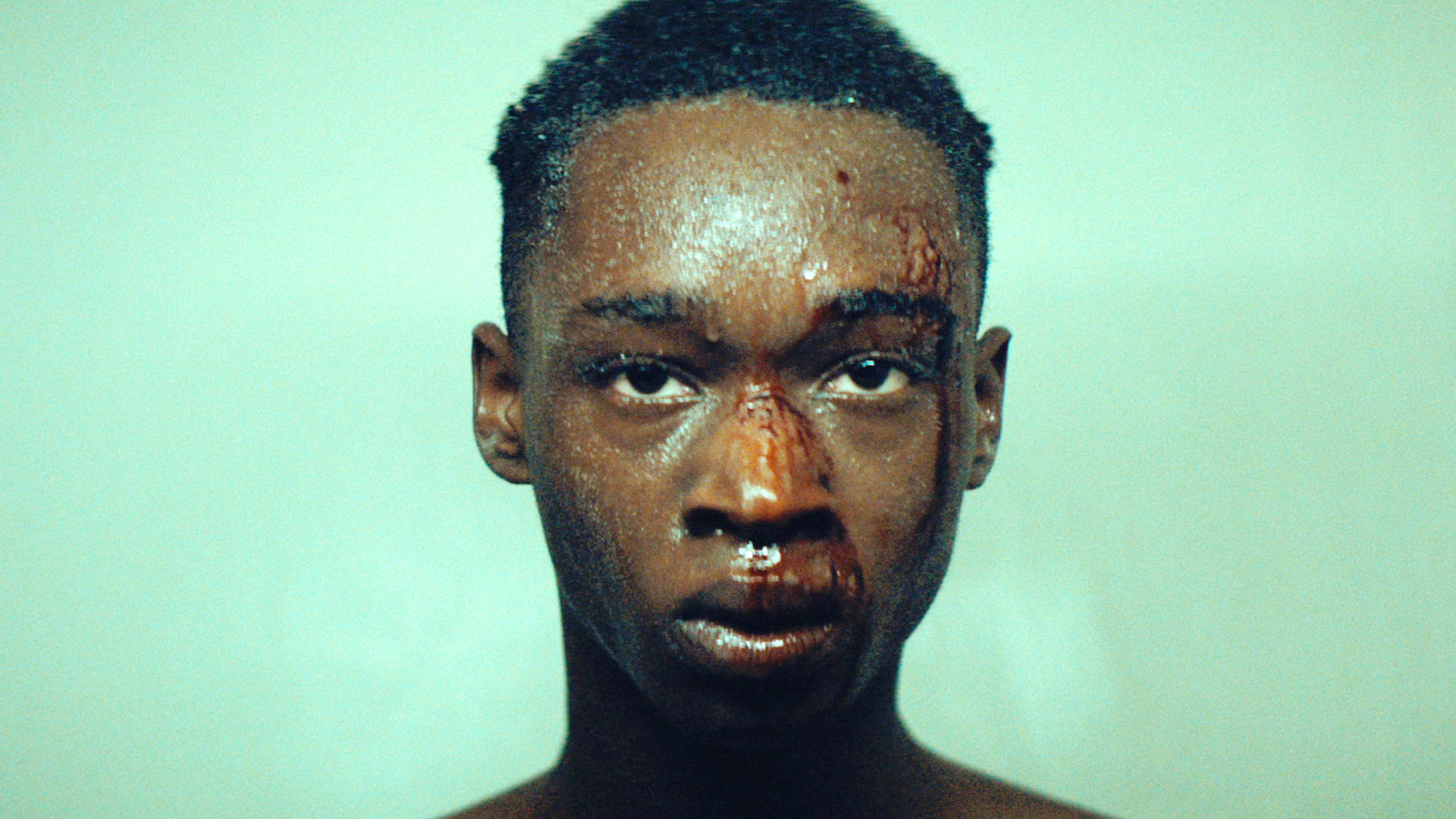Starring: Trevante Rhodes, Ashton Sanders, Alex Hibbert, André Holland, Jharrel Jerome, Janelle Monáe, Naomie Harris, Mahershala Ali
Moonlight is a heavy film. Watch the trailer, and you'll see that it's not a conventional coming-of-age story. Moonlight centers around a young African-American man in three stages of his life: his childhood, adolescence, and adulthood. The film itself is divided into three chapters and is very reminiscent of a play, of which it is based on. Chiron begins as a young boy living in rural inner-city Miami. His negligent mother is spiraling in and out of drug-induced stupors, leaving Chiron (who doesn't realize his nickname Little is a schoolyard taunt) to fend for himself. The kids beat him up and torment him for "being a fag", and he gravitates towards Juan, a local drug dealer who shows him kindness. The events that transpire in the years following show a young man struggling to accept himself and struggling with his identity. The two figures in his life: Juan, a mentor, and his drug-addicted mother, are masterfully contrasted in their tender and distant connections with the protagonist. While Moonlight addresses preconceived ideas about being gay and self-acceptance, it truly is about what it's like to grow up black in a community where the odds are stacked against you. It is a beautiful story, and while dull in areas, it is powerful and affecting all the same. Whether you identify with growing up poor, black, gay, or simply the pressures of being yourself, Moonlight finds a way to affect every viewer.
As far as acting goes, the three portrayals of Chiron (Little, Chiron, and Black) all make a strong impression. Personally, I feel the young Chiron was the most affecting. It's not pleasant to watch a small kid running for his life from bullies, and that's where this film opens. For such a small child, he painfully knows so much about his world. One of the most powerful moments is when he sits down with Juan and asks him if he deals drugs. Juan tells him the truth. He asks Juan if he gives drugs to his mom. Juan tells him the truth. He asks what "a fag" is and if he is one. Juan replies "No. You could be gay. But you don't gotta let nobody call you a fag." It's such a touching scene, and the simplicity of the moments between Juan and Chiron soon disappear. When he grows up, his life becomes more complicated. Pursued by rumors of his sexuality, he's beaten up by his best friend. His dreams are haunted by longing for this friend and the sting of rejection. His mother is nowhere to be seen unless she needs money for drugs. A woman who was once "trying" is now seen as a disheveled mess, jealous of the love Juan's wife Teresa (played beautifully by Janelle Monáe) gives her son.
It is the final act that brings the film full circle. When Chiron becomes an adult, he becomes the same man Juan was. He was unable to escape the confines of his community and has fallen in the same hole. He's dealing drugs to people like his mother. He dresses with a bandana like Juan and wears grills in his teeth. By rejecting his mother and accepting Juan, he has basically become the amn. It is in this form, Juan has a lasting presence in the film, as he unfortunately dies off screen between parts 1 and 2. Mahershala Ali (Remy from House of Cards) does an exceptional job in this small supporting role. I cannot see him not receiving a nomination for his excellent performance. The same goes for Paula, played by Naomie Harris, who is the exact opposite. Her desperation for drugs blinds her to her child's needs. When the youngest Chiron is onscreen, we see her as a monster. Her behavior is robbing him of a normal childhood, and she is indifferent to his need for attention and love. As he grows up, we see her clean and begging for forgiveness. Paula is not a monster. She's not heartless like other portrayals of abusive moms. She is a product of drugs and bad decisions, and the bleak portrait of her helplessness is very powerful. The climax of the film is in the third act, where Chiron visits her in rehab. A shell of her former self, she looks for forgiveness, begging: "You don't gotta love me. But you're gonna know that I love you."
Moonlight is a coming-of-age tale that is very selective. My best comparison is Boyhood from 2014. That film is true to just about every kid growing up, and allows you to witness a child gradually becoming aware of the vast world around him. Moonlight is different. It is essentially about what it's like to be black, yet it somehow speaks to more than just skin color. The race and sexuality issues are able to illustrate a portrait of a man trying to feel at home in his own skin, yet still depict marginalized individuals. My only complaints for Moonlight are pace problems. It was often times a little too slow for me, and felt like it was moving at a snail's pace, especially in Act II. Occasionally I understood the choices, but at times I thought it needed to move more quickly. Anyways, if you want to see a surefire Oscar nominee, Moonlight will undoubtedly be in consideration, and I strongly believe it will get a lot of support. It's certainly a film that will make you think about your life.
Rating:





No comments:
Post a Comment